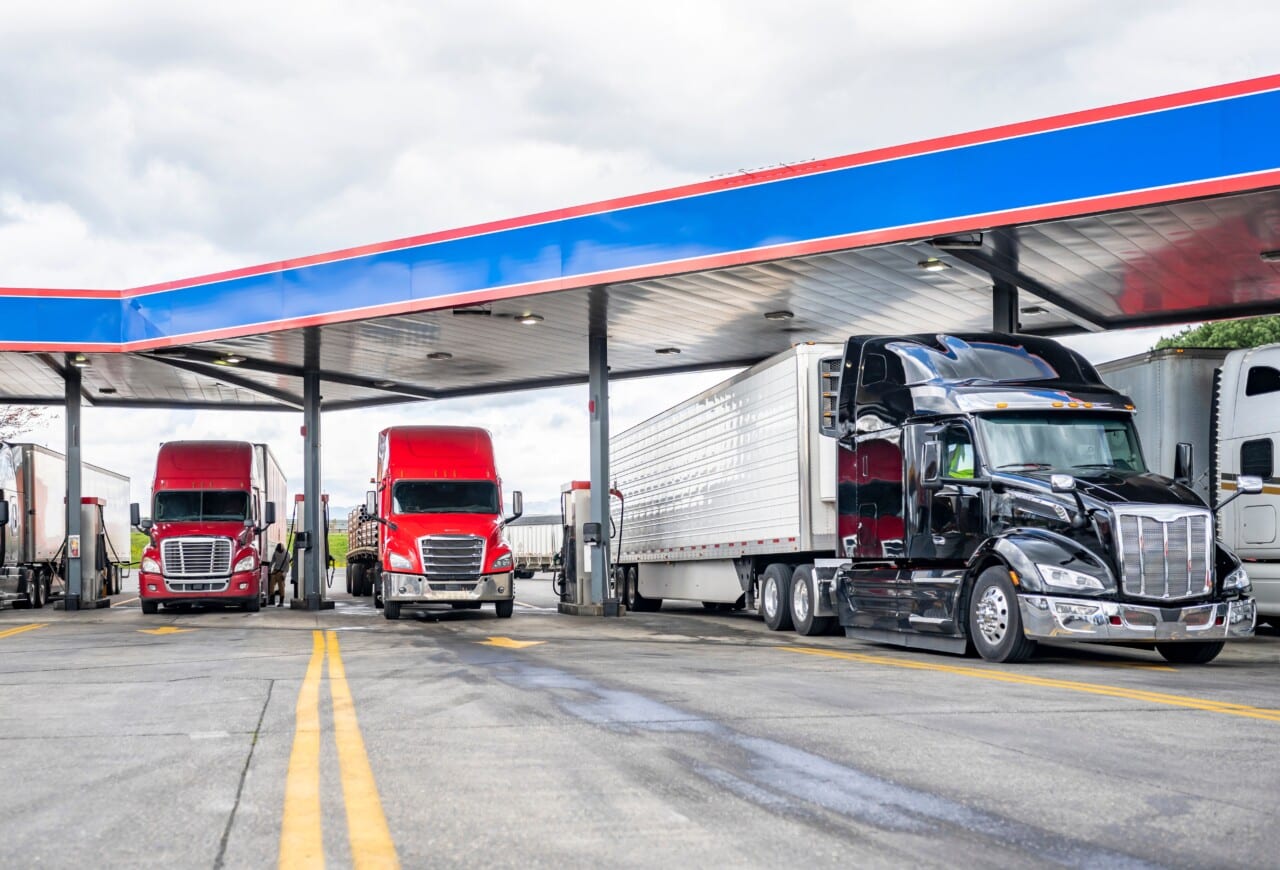
How much diesel does a truck burn idling? The answer is simple: too much if you’re idling for too long.
Routinely idling your diesel truck — letting its engine keep running when you have to take a short break in driving — is part of every diesel vehicle driver’s experience. You need to idle when you stop at traffic lights, when making quick deliveries, or when you just need to take a break from driving. Idling so you can keep your systems running and resume your journey without having to restart your engine is normal and expected.
Too much idling, however, can wreak havoc on your diesel-powered vehicle, cost you a lot of money, damage the environment, and present a nuisance for those around your rig. This article answers common idle diesel questions and offers suggestions for improvement.
Does Idling Save on Diesel Fuel Costs?
While you might think that idling is more cost-effective because it saves fuel, this is a myth.
So, how much fuel does idling use? The truth is that if you idle a diesel truck engine for more than 10 seconds, you’re actually using more fuel than if you just powered down and then restarted the engine. On average, a heavy-duty diesel truck wastes 1 gallon of fuel for every hour it idles. With diesel gas prices ranging from $4.50 to $5.25 per gallon nationwide in the last quarter of 2023, it’s easy to see how idling your vehicle could be burning up your money.
If you idle your diesel truck for 40 hours a week, and you’re paying an average of $5 a gallon for diesel fuel, you’re spending about $200 a week idling your vehicle. That’s a lot of fuel and money to go nowhere.
Is It Bad To Let A Diesel Engine Idle?
Along with wasting fuel, when you idle diesel trucks, you’re not doing your engines any favors. Just one hour of idling per day over the course of one year is the same as 64,000 miles in engine wear, according to the American Trucking Associations.
Idling increases engine wear and tear and potentially causes damage to the engine’s components. It can lead to soot and carbon deposit buildup in the engine, and that will impact both engine performance and the overall longevity of your engine. Too much idling can also cause your engine to overheat and can potentially damage the engine’s cooling system.
In addition, idle diesel vehicles are bad for the environment. When you idle your diesel truck, you’re increasing the release of harmful emissions, and that adds more harmful pollutants into the atmosphere. In fact, carbon dioxide from truck idling is a significant contributor to the greenhouse effect and climate change.
Idling heavy-duty diesel vehicles also contributes to noise pollution. Idle diesel trucks emit noise at 85 decibels at a distance of 50 feet. Sixty decibels is considered a moderate noise level where normal conversations can be heard, and 80 decibels is considered “very loud.” For a truck engine to drop to the acceptable level of 55-to-60 decibels for most residential areas, it would need to be 1600 feet away. Think about that next time you leave your diesel truck idling in a residential area.
Strategies to Reduce Idling and Save Fuel
Not all diesel truck idling can be avoided. Drivers on long hauls need to run their engines to stay warm or cool in their trucks while resting. This is especially critical as drivers need to get adequate rest while on the road for safety reasons. Fortunately, there are idling reduction technologies and behavior changes truck owners and operators can adopt to reduce idling while saving fuel.
Idling Reduction Technologies (IRTs)
With IRT devices, truckers can reduce long-duration idling of the main propulsion engine using one of the following EPA-approved technologies:
- Auxiliary Power Units and Generator Sets (APU/GS)
- Fuel Operated Heaters (FOH) aka Direct Fired Heaters (DFH)
- Battery Air Conditioning Systems (BAC) (Battery operated heating and/or cooling system)
- Thermal Storage Systems (TSS)
- Electrified Parking Spaces (EPS) / Truck Stop Electrification (TSE)
Behavioral Strategies and Financial Incentives
Additionally, truck fleet owners can adopt the following to incentivize drivers to reduce idling.
- Offer education to operators regarding the problems caused by long-duration idling
- Offer drivers financial incentives to reduce idling, increasing the incentive the more improvement is seen and/or when idling reduction goals are met
How Best Roadside Service Helps Keep Your Fleet On the Road
Too much idling is just one of the many issues that can cause problems for commercial truck operators. That’s why a top-notch and affordable commercial roadside assistance plan can save the day should any of your trucks break down. To learn more about how Best Roadside Service can keep your commercial trucks moving, contact us today.




